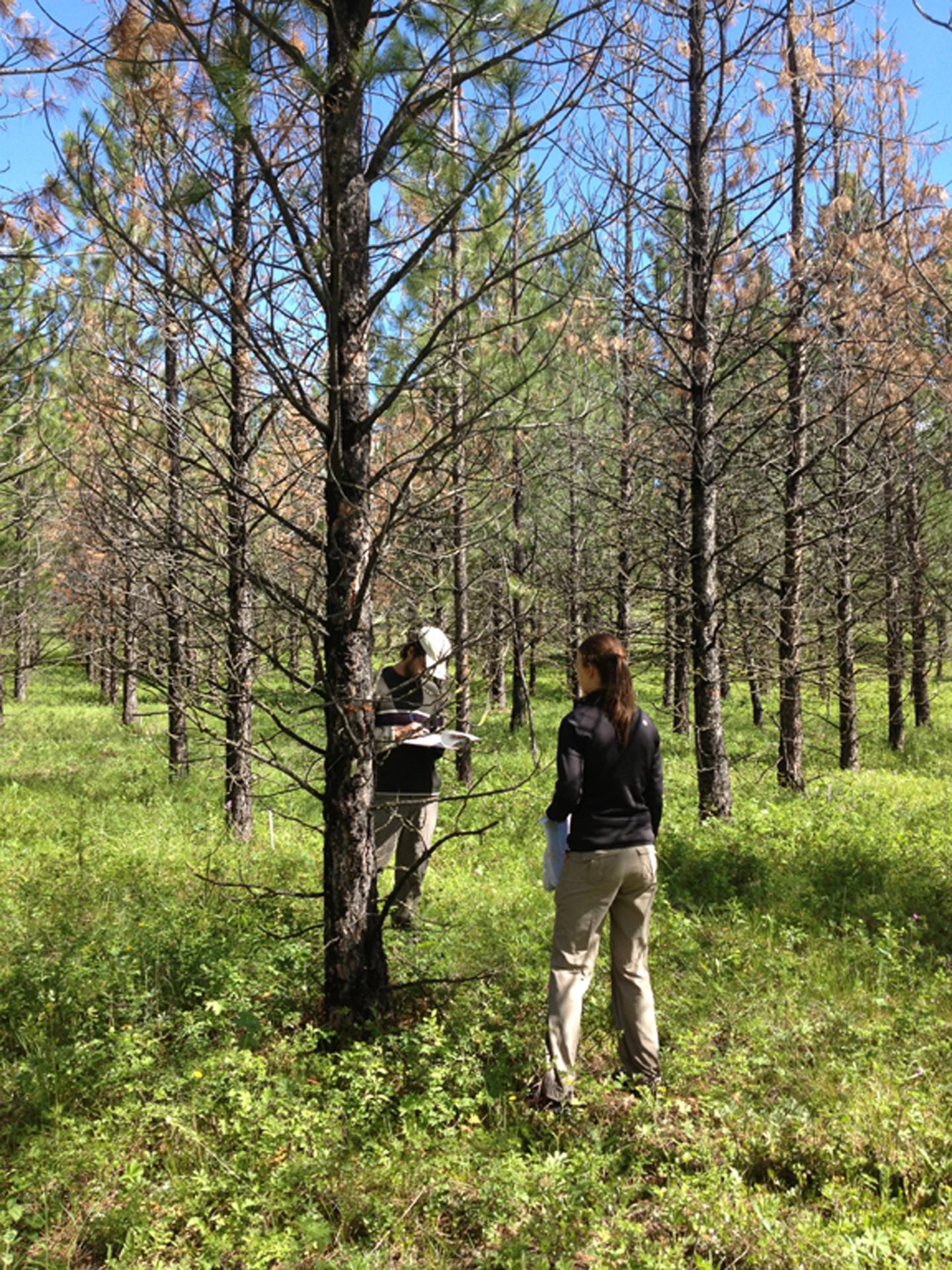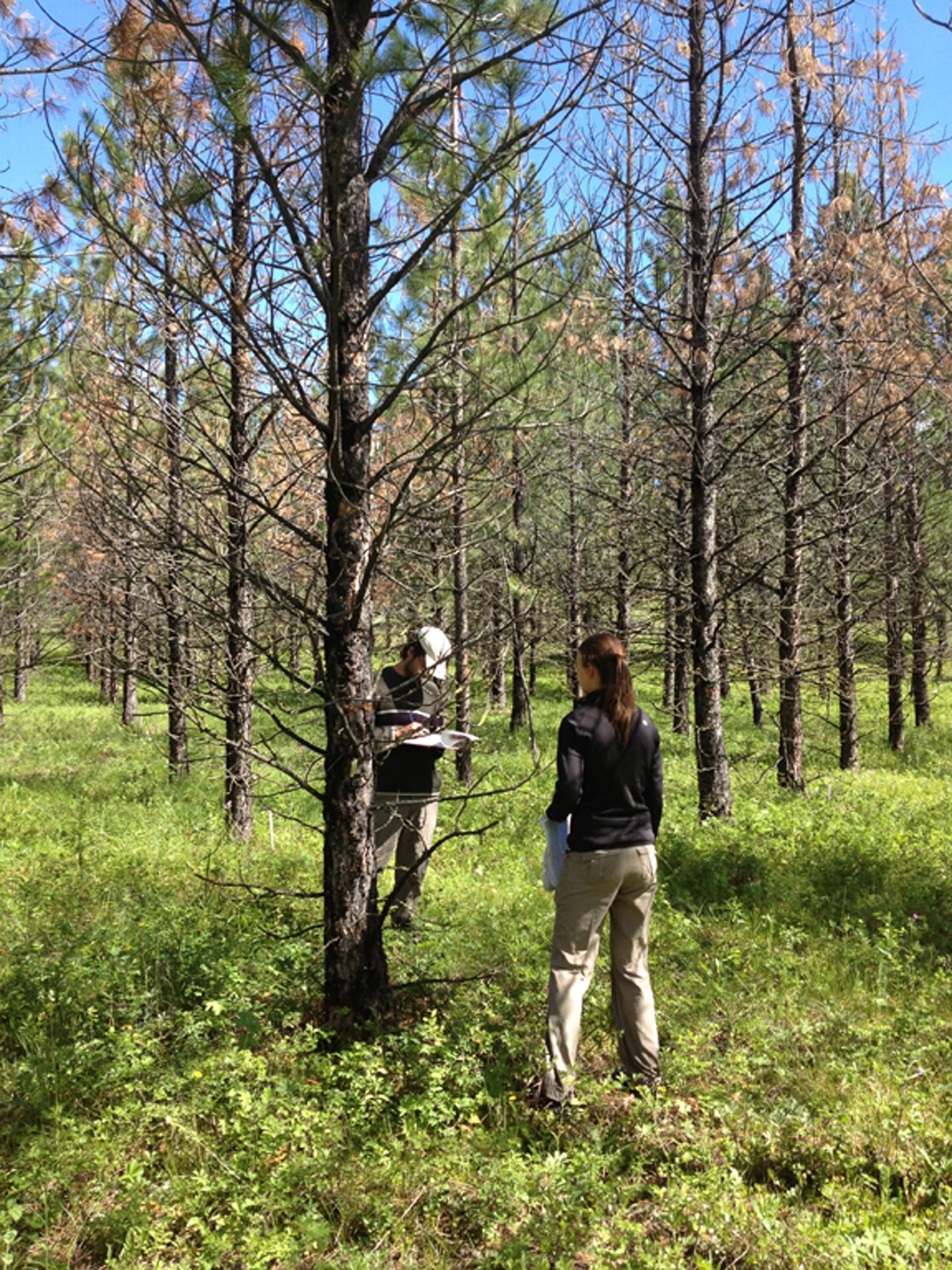
Credit: courtesy photo
MISSOULA – Slow-growing ponderosa pines may have a better chance of surviving mountain pine beetle outbreaks in western Montana as climate change increases the frequency of drought and insect pests, according to new research published by a team of University of Montana scientists.
The team of researchers, led by UM biological sciences Professor Anna Sala, published their findings in the journal Proceedings of the National Academy of Sciences this month. The study, based on a 38-year ponderosa pine genetic experiment at UM's Lubrecht Experimental Forest, found young families of fast-growing ponderosa pines typically survived to maturity better than slow-growing ones — but this was not the case when mature trees were affected by a mountain pine beetle outbreak. In that scenario, slow-growing families survived better.
"Our findings explain why natural tree populations maintain a mixture of genotypes with different growth rates," Sala said. "The study illustrates why the maintenance of genetic diversity is critical to cope with the varying demands as organisms grow, as environmental conditions change and with the variety of risks that organisms face during their lifespan — particularly under climate change, when the frequency of drought, insect pests such as the mountain pine beetle and extreme events are predicted to increase."
The team used a combination of data to show that fast growth in trees may be costly. They measured survival after a mountain pine beetle outbreak when trees were almost 40 years old and used a long-term dataset on survival and growth rates of over 4,000 trees planted in 1974, which was provided by the Inland Empire Tree Improvement Cooperative. With these data, the researchers were able to show in a long-lived organism that the specific genotypes that survive at any given point in time had changed over time. Their study shows that under some circumstances, such as high bark beetle densities during an outbreak, fast growth is costly.
###
The article, "An insect outbreak shifts the direction of selection from fast to slow growth rates in the long-lived conifer Pinus ponderosa" can be accessed online at http://bit.ly/2rYU9hb. For more information call Sala at 406-243-6009 or email [email protected].
Media Contact
Anna Sala, , professor, UM Division of Biological Sciences
[email protected]
406-243-6009
http://www.umt.edu
Original Source
http://bit.ly/2s2LZ7w
############
Story Source: Materials provided by Scienmag





